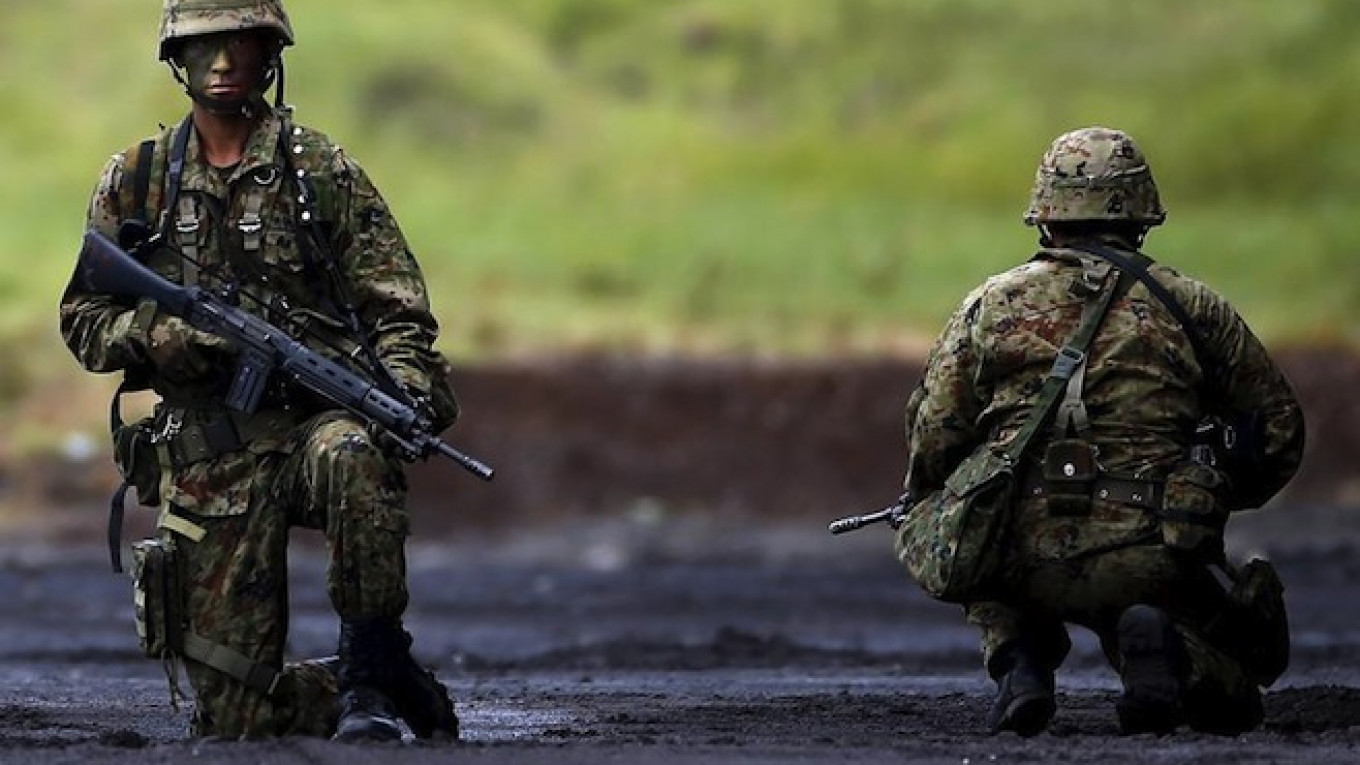German Chancellor Angela Merkel invited Japan to join the North Atlantic Treaty Organization (NATO) during dinner with Japanese Prime Minister Shinzo Abe, the Japan News website reported Monday.
Merkel made the remarks in Tokyo in March 2015, adding that she could convince British Prime Minister David Cameron and French President Francois Hollande to agree with her proposal, the Japan News reported.
Shinzo Abe responded by saying that Tokyo may consider this request in the future, adding that if Japan joins NATO now, its negotiations with Moscow over the disputed "northern territories," —known as the Kuril Islands in Russia — would be over.
Shinzo Abe is scheduled to meet with Russian President Vladimir Putin on May 6 in the Black Sea resort of Sochi, the site of the 2014 Winter Olympics, the Kremlin press office reported on its official website.
The disputed territories are likely to dominate the agenda of the upcoming meeting, which comes just two weeks before the G7 summit in Japan.
According to Japan News, "if Abe visits Russia before the G7 Ise-Shima Summit to make progress in negotiations over the northern territories, Japan can claim that his visit will not cause disarray among the G7 nations." The news website added that if the talks are "substantive," Putin may visit Japan before the end of the year.
A decade after the end of World War II, Japan and the Soviet Union signed the 1956 Joint Declaration, in which the Soviets agreed to transfer the disputed territories to Japan after a peace treaty was signed between the two countries. However, more than 70 years after the end of World War II, there remains no official peace treaty between the two countries.
A Message from The Moscow Times:
Dear readers,
We are facing unprecedented challenges. Russia's Prosecutor General's Office has designated The Moscow Times as an "undesirable" organization, criminalizing our work and putting our staff at risk of prosecution. This follows our earlier unjust labeling as a "foreign agent."
These actions are direct attempts to silence independent journalism in Russia. The authorities claim our work "discredits the decisions of the Russian leadership." We see things differently: we strive to provide accurate, unbiased reporting on Russia.
We, the journalists of The Moscow Times, refuse to be silenced. But to continue our work, we need your help.
Your support, no matter how small, makes a world of difference. If you can, please support us monthly starting from just $2. It's quick to set up, and every contribution makes a significant impact.
By supporting The Moscow Times, you're defending open, independent journalism in the face of repression. Thank you for standing with us.
Remind me later.






